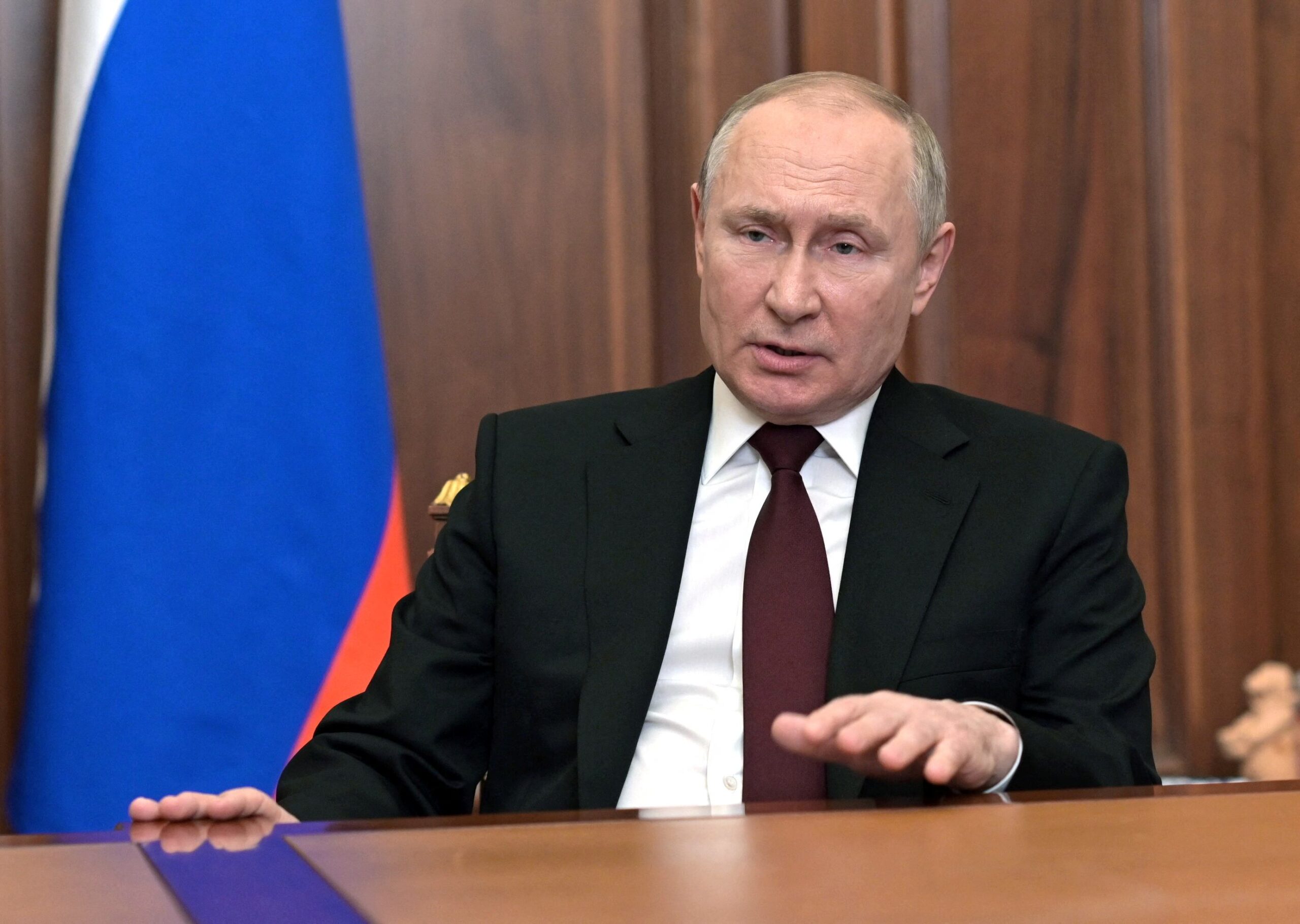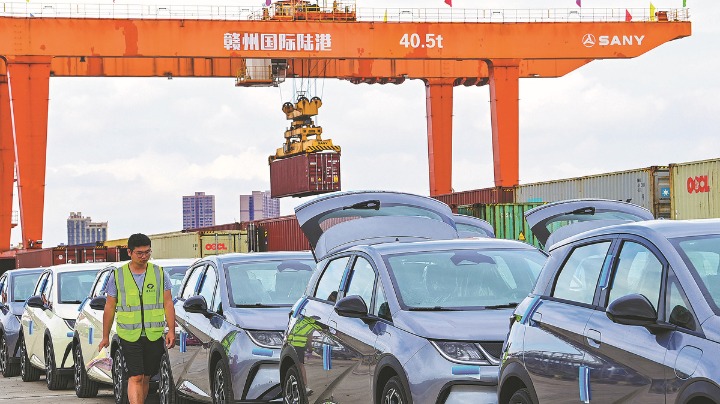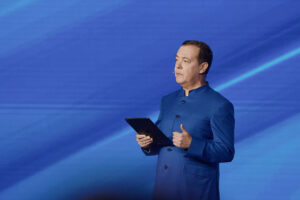Growing consensus among manufacturers is investigation ‘could do more harm than good’
The Financial Times and other influential Western newspapers are siding with executives from European automakers in voicing concern over the European Union’s anti-subsidy investigation into imports of China-made electric vehicles.
Despite clear objections from the Chinese side, the EU announced the start of the investigation on Wednesday. The move came after European Commission President Ursula von der Leyen’s address in September, claiming that global markets are being « flooded » with cheaper Chinese electric cars.
The investigation into subsidies for China-made electric vehicles exported to Europe « could do more harm than good », BMW’s chief financial officer Walter Mertl said in a Friday interview with Reuters, during which he stated he did not endorse punitive tariffs.
BMW exports the iX3 from China to other parts of the world and its electric MINI vehicles will follow suit from around 2024, leaving it vulnerable to possible EU tariffs on imports from China. Mertl said the investigation would shield those who do not have significant sales in China but would affect every automaker doing business in the country, which is the world’s largest vehicle market.
The Financial Times and Politico, a Washington-based publication, pointed out the EU’s probe was primarily the result of pressure from the French government. French marques including Peugeot, Citroen and Renault have lackluster performance in China. Politico also reported the move is on the commission’s own initiative, a so-called ex-officio investigation, instead of being triggered following a formal complaint from the EU industry, as is usually the case.
The commission said subsidies had allowed a rapid rise of cheap imports into the EU, with expected overcapacity in China likely to lead to further increases in the near future. It said the alleged subsidies were in the form of grants, loans from State-owned banks on preferential terms, tax cuts, rebates and exemptions and state provision of goods or services, such as raw materials and components, at less than adequate prices.
China’s NEV subsidies, which were introduced in 2009 to stimulate the sector’s development, were phased out completely by the end of 2022 after several rounds of gradual cuts.
China is « very much dissatisfied « with the anti-subsidy investigation as it lacks adequate evidence and does not conform to World Trade Organization rules, the Ministry of Commerce said in a statement issued in Beijing on Wednesday.
It said the Chinese side has not been given adequate consultation materials, in addition to a very short time to engage in consultations. The European Commission advised parties wanting a hearing to request one within 15 days.
Alan Beattie, a senior business writer at the Financial Times, wrote in an op-ed column published in late September that the EU’s threatened anti-subsidy duties are an admission that European companies and governments have been slow to innovate. He countered that Germany’s car industry doesn’t lack government backing, adding that Volkswagen in particular is a partly State-owned enterprise through the stake owned by the German state of Lower Saxony.
Beattie also said the EU’s problem with electric vehicles has not primarily been the opening of the European market.
« These poorly targeted and possibly counterproductive trade restrictions, which risk holding back green transition by making EVs more expensive, are not a substitute for creating an environment in which European companies can compete, » he wrote.
« If the commission genuinely wanted to give European industry breathing space, it would have gone for a ‘safeguard measure’, which gives temporary protection against all imports, rather than singling out China. »
The European Commission has said China’s share of EVs sold in Europe has risen to 8 percent and could reach 15 percent in 2025. However, the single largest source of made-in-China EV imports are the Tesla cars made in the US company’s plant in Shanghai, not the indigenous Chinese brands, which have relatively small footholds.
Oliver Blume, chairman of the board of management at Volkswagen AG, the largest automaker in Europe, said in September that strong competition sends consumers positive signals.
« When you have strong competition, you have to improve yourself; you can’t rest on what you have achieved, » said Blume. « I am a supporter of worldwide trade, because that is a big advantage for all countries to bring wealth, to improve the economic situation of each country. That is, in the end, a benefit for all people. Therefore, competition is welcomed from my point of view. »
China-made electric vehicles are gaining popularity overseas, and Paul Gong, a UBS analyst, said they have a cost advantage, which is the result of not only production in China. UBS’ recent disassembling of BYD’s electric Seal showed the vehicle is 15 percent lower in terms of cost compared with Tesla’s Model 3, and around 35 percent lower than Volkswagen’s electric vehicles.
« Even if Chinese carmakers had produced their vehicles in Europe, their cost would be around a quarter lower than their European rivals, » said Gong.




































